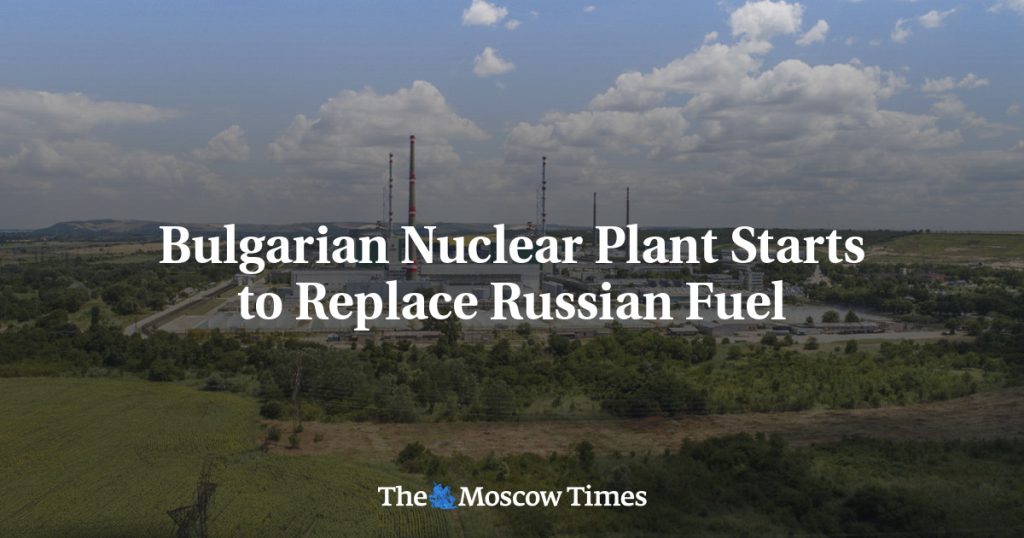Bulgaria’s Kozloduy nuclear power plant has taken a significant step in reducing its reliance on Russian energy by beginning to use atomic fuel produced by the U.S.-based Westinghouse Electric Corporation. The plant, which supplies over a third of the country’s electricity, had previously used Russian fuel for its two operational Soviet-built reactors. This shift towards new fuel sources comes as Bulgaria seeks to diversify its energy supplies in the aftermath of Moscow’s invasion of Ukraine in 2022.
Following the signing of nuclear fuel supply agreements with Westinghouse and Framatome, a subsidiary of French energy company EDF, Kozloduy is gradually transitioning away from Russian fuel deliveries. The first reactor at the plant has already been connected to the national grid using fuel assemblies produced by Westinghouse. It is expected that this transition process to the new fuel type will take approximately four years. This move is part of Bulgaria’s broader efforts to reduce its dependence on Russian energy supplies and increase its energy security in light of recent geopolitical events.
Before the invasion of Ukraine, Bulgaria relied heavily on Russian energy supplies, but has since taken steps to diversify its energy sources. The Kozloduy plant’s second reactor is set to be supplied with fuel from Framatome, while plans are in place to install two U.S.-built nuclear reactors at the site by the 2030s. This shift towards Western fuel suppliers aligns with Bulgaria’s strategic goal of reducing its vulnerability to interruptions in Russian energy deliveries and strengthening its energy independence in the region.
In addition to Bulgaria, other countries in Eastern Europe, including the Czech Republic, Slovakia, and Hungary, have also signed agreements with Westinghouse and Framatome for nuclear fuel supply. This collective effort to reduce reliance on Russian energy sources underscores the region’s commitment to energy security and diversification. By partnering with Western companies for nuclear fuel supply, these nations are taking proactive steps to reduce their vulnerability to geopolitical pressures and ensure a stable and sustainable energy supply for their populations.
The cooperation between Bulgaria’s Kozloduy nuclear power plant and Western fuel suppliers represents a positive development in the region’s energy landscape. By diversifying fuel sources and reducing reliance on Russian energy supplies, Bulgaria is strengthening its energy security and contributing to regional stability. The gradual transition to new fuel types at the Kozloduy plant is a strategic move that aligns with Bulgaria’s broader goals of enhancing energy independence and reducing vulnerability to external pressures. Through partnerships with Western companies like Westinghouse and Framatome, Bulgaria is taking proactive steps to ensure a sustainable and secure energy future for its citizens.
Overall, the shift towards Western nuclear fuel suppliers at Bulgaria’s Kozloduy plant reflects a broader trend in Eastern Europe of reducing dependency on Russian energy sources. By diversifying fuel supplies and strengthening energy security through partnerships with Western companies, countries in the region are enhancing resilience against geopolitical pressures. The collaboration between Bulgaria, Westinghouse, and Framatome is a positive step towards achieving greater energy independence and stability, while also contributing to the wider goal of ensuring a secure and sustainable energy supply for the region.















